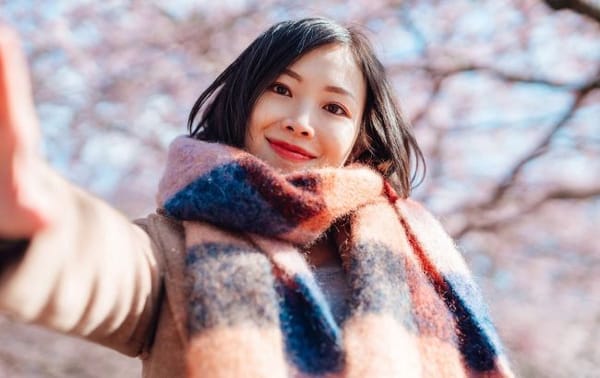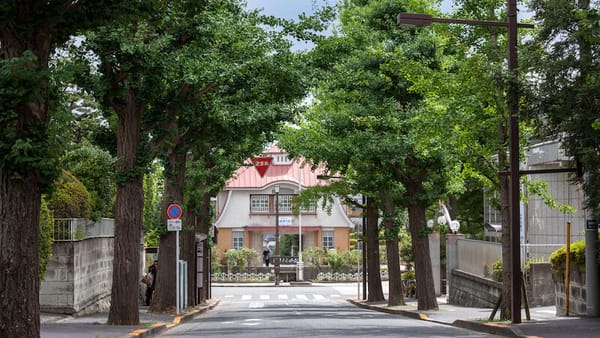10 Quiet Social Cues in Tokyo That Only Locals Know
The real Tokyo manners aren’t loud. They’re quiet, subtle, and easy to miss — unless you know what to look for.

Tokyo’s social rules go beyond the basics. It’s the small, quiet habits that help you settle in and feel more connected here — if you know what to look for.
If you’ve been living in Tokyo for a few years now, you probably already know the usual etiquette: keep your voice down on the train, remove your shoes indoors, wait patiently in line. But there’s a softer, quieter layer beneath all of that — subtle signals and small gestures that aren’t always spelled out but make all the difference in how we move through this city.
These nuances can feel a little elusive, especially because manners are, after all, tied to personal experience. Yet, embracing these understated customs can help you navigate social situations with more ease — and maybe even deepen your respect for the quiet rhythms of Tokyo life.
Here are 10 quietly powerful cues to help you blend in and connect more thoughtfully.
1. Not Ordering a Drink or Accepting the Tea
In smaller or busier Tokyo eateries, asking only for free tap water can come off as inconsiderate — not because it’s rude, but because it signals you’re not supporting the establishment. Complimentary tea is usually offered, and accepting it without asking for more can subtly say, “I’m just here for the bare minimum.”
Ordering even a small drink shows appreciation for the service and space — and helps keep things running.
2. Not Waiting to Be Seated
Even in casual restaurants or cafés, it’s good form to pause and wait for staff to guide you. Seating in Tokyo often follows an unspoken order — and jumping ahead can feel presumptuous.
A short pause, a glance at the staff, or a gentle “すみません” does the trick. It’s a tiny moment of acknowledgment that carries quiet weight.
3. Offering Help or Advice Too Readily
It’s natural to want to be helpful, especially if someone seems confused or lost. But in Tokyo, uninvited suggestions — especially in public — can feel intrusive or even embarrassing.
If you genuinely think someone needs help, approach gently and use soft language like:
“ご迷惑でなければ…” (If it’s not a bother…) or
“お困りですか?” (Are you in trouble?)
Even kindness benefits from subtlety here.
4. Touching the Rim of Bowls or Cups
When eating, try not to grip the rim of your bowl or cup with your hands. In Japanese dining etiquette — especially in Tokyo — hands should support from the sides or bottom.
It’s a delicate gesture that shows care and mindfulness, much like the way you place your chopsticks or bow slightly when saying “ごちそうさまでした.”
5. Bringing Up Polarizing Topics at the Table
In many cultures, a spirited debate over dinner is part of connection. In Tokyo? Not so much.
Topics like politics, religion, or social controversy are typically avoided in group meals, especially with people you’re not close to. Meals are moments of harmony — spaces to connect gently, not confront.
Save the deep conversations for private, trusted circles.
6. Receiving with One Hand or Giving Casually
Presentation matters in Japan, even in the smallest moments. When handing or receiving something — a gift, a receipt, a business card — using both hands shows attentiveness and care.
Giving or receiving with one hand, especially in formal settings, can feel rushed or disrespectful. Slow down, steady your hands, and meet the moment with presence.
7. Wearing Hats or Sunglasses Indoors
In Tokyo, taking off your hat or sunglasses when entering a building is more than good manners — it’s a sign of respect and emotional openness.
Sunglasses in particular can feel distancing, especially in professional or traditional settings. They hide the eyes, which are often viewed as a window into sincerity.
Of course, style matters — but so does the energy you bring into a room.
8. Lingering Too Long After a Meal
It’s lovely to savor a good conversation over coffee. But in Tokyo’s compact cafés and popular restaurants, space is always in demand. Lingering after you’ve finished — especially if you’re not ordering more — can unintentionally inconvenience others.
Watch the room. If people are waiting, or staff begin clearing nearby tables, take it as your cue to leave gracefully.
9. Ignoring Photography Etiquette
Many public spaces — shrines, boutiques, galleries — have signs asking guests not to take photos. Ignoring them, even with good intentions, can cause discomfort or be seen as disrespectful.
When in doubt, a polite “写真を撮ってもいいですか?” (May I take a photo?) goes a long way. It shows awareness — and often earns you a warm yes.
10. Overlooking the Social Messages in Appearance
In Tokyo, appearance isn’t about vanity — it’s a reflection of social awareness. Wearing clean, polished clothes and light makeup (if that’s your style) in professional settings signals that you respect the space and people around you.
It’s not about “dressing up” — it’s about showing you’re present and prepared. Similarly, details like long, untrimmed nails or heavy scents can carry unintended messages.
How we show up shapes how others experience us.
Grace Lives in the Quiet Details
Tokyo doesn’t shout its expectations — it whispers them. And part of living here is learning to tune in to the soft rhythm of the city’s unspoken norms. You don’t need to be perfect. Just noticing is a form of respect.
When we move through this city with quiet awareness — not out of fear, but from curiosity and care — we give ourselves the gift of connection. Not just with others, but with the delicate beauty of daily life here.
Follow us on Instagram @coulecte and YouTube @coulectejapan, or sign up for our email newsletter to get more thoughtful guides like this delivered straight to you.





